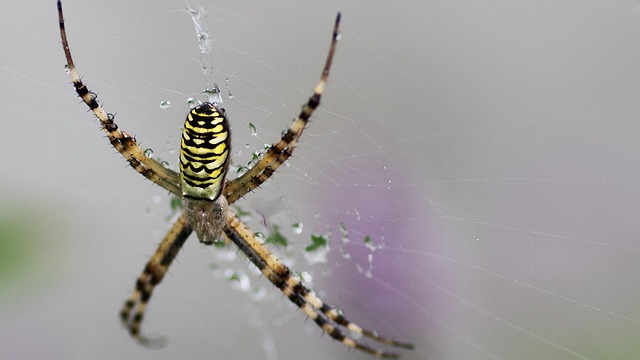Hornets pose a common dilemma for homeowners due to their aggressive nest defense mechanisms. Prevention strategies include understanding their behavior, sealing entry points, maintaining a clean environment, and early intervention by professional hornet control experts. Safety is paramount, especially around children and pets. Effective non-toxic methods like citronella or peppermint oil repellents and pheromone traps are available. Persistent problems require hiring reputable professional hornet control services for safe and tailored solutions, particularly for large nests, allergy concerns, or households with pets.
Hornets can pose a significant threat to both children and pets, but with the right prevention strategies, you can keep them at bay safely. This comprehensive guide explores child- and pet-safe methods for hornet nest prevention, focusing on understanding these insects’ behavior and habitat. We delve into non-toxic deterrents, offer tips for professional hornet control, and provide essential pet safety measures. By implementing these strategies, you can create a secure environment without resorting to harmful chemicals.
Understanding Hornet Behavior and Habitat
Hornets, known for their aggressive defense of their nests, are a common concern for homeowners. Understanding their behavior and habitat is key to implementing effective prevention strategies. These social insects live in organized colonies with a queen who lays eggs, workers who forage for food and defend the nest, and drones whose sole purpose is mating. They prefer secluded areas like hollow trees, brick walls, or attics for nesting, attracted by small entry points as narrow as 3/8th of an inch.
Professional hornet control experts emphasize that disturbing a nest can trigger a relentless attack, making prevention crucial. Regular inspections and sealing off potential entry points during the spring and summer months when nests are established can significantly reduce the risk. Additionally, maintaining a clean environment, especially around outdoor eating areas, removes attractants like sweet foods and garbage that may draw hornets in search of food or shelter.
Non-Toxic, Child-Safe Deterrents for Hornets
When it comes to protecting your home and family from hornets, there are non-toxic, child-safe options that offer effective professional hornet control. These methods prioritize safety while still ensuring a robust defense against these stinging insects. One popular approach involves using natural repellents like citronella or peppermint oil, which hornets find unpleasant. Spraying these essential oils around entry points and common nesting areas can deter hornets without harming children or pets.
Additionally, specialized hornet traps provide a safe and humane way to manage the population. These traps lure hornets with pheromones, trapping them inside without causing any harm. This method is particularly useful for families seeking professional hornet control while minimizing the risk of stings. By employing these non-lethal strategies, you can create a safer environment for both children and pets, enjoying peace of mind in your home.
Professional Hornet Control: When and How to Hire Experts
If hornets have become a persistent problem on your property, it might be time to consider professional hornet control services. These experts are equipped with specialized knowledge and tools to handle even the most challenging hornet infestations safely and effectively. Hiring professionals is especially recommended for large or hard-to-reach nests, as well as when there is a concern for human safety due to an allergy or presence of children and pets.
When seeking professional hornet control, ensure you choose a reputable company with proven experience in pest management. They should employ safe and environmentally conscious methods, prioritizing the use of non-toxic chemicals where possible. A good provider will assess your situation, offer tailored solutions, and provide aftercare advice to prevent future infestations.
Pet Safety Measures During Hornet Nest Prevention
When taking measures to prevent a hornet nest, it’s crucial to ensure pet safety as well. Pets, especially dogs and cats, may be curious and potentially put themselves at risk by approaching or disturbing a nest. During any professional hornet control operation, it’s essential for experts to take extra precautions to protect pets in the area. This includes wearing specialized protective gear and using methods that minimize the risk of exposure for both the pests and animals.
If you suspect a hornet nest nearby, it’s recommended to contact professionals who specialize in pest control rather than attempting to handle it yourself. They have the knowledge, tools, and experience needed to safely remove or prevent nests while keeping your pets out of harm’s way. This proactive approach ensures a peaceful environment for both your family and any resident animals.
In conclusion, preventing hornet nests while ensuring child and pet safety is achievable through understanding their behavior, utilizing non-toxic deterrents, and knowing when to seek professional help. By implementing these safe methods, you can create a comfortable outdoor space for everyone, enjoying the beauty of nature without the risk of stings. Remember, should hornet activity become excessive or pose a significant threat, it’s time to call in the experts for effective professional hornet control.
